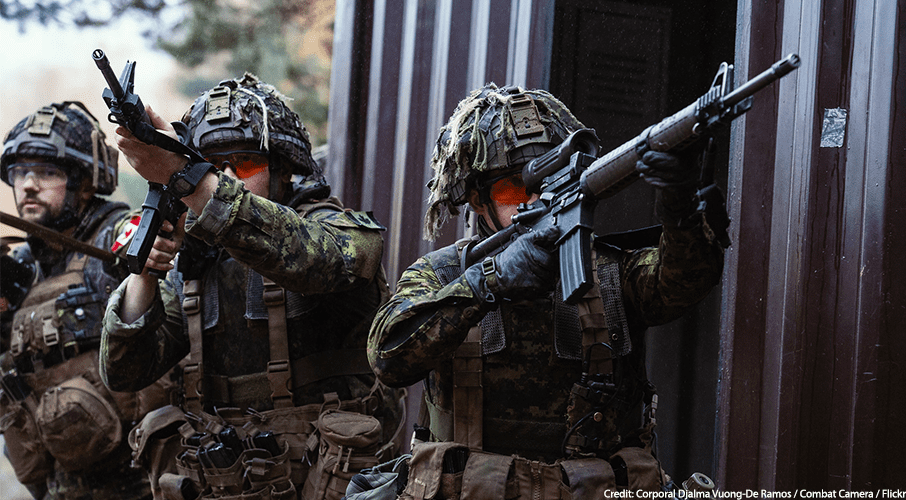This article first appeared in The Hub.
By Bob Murray, July 22, 2022
Russia’s invasion of Ukraine has driven home what many have observed for over a decade: the structure of the international order is changing. The rise of new powers and the ongoing decline of American power require the realignment and reassessment of international and national security strategies for states and institutions alike. Indeed, given the rapid evolution of threats, the evolving world order promises to be both complex and unstable.
For decades, however, Canada has allowed itself to become seemingly lazy on the global stage. By being so closely associated geographically, economically, politically, and culturally with the United States as the lone global superpower after the Cold War, Canada allowed its international strategy to become more focused on domestic political consumption than on substantive global engagement. This decline, despite warnings from observers and experts, has been largely ignored by Canadians, who have traditionally shown little interest in Canadian foreign policy, even at times of global crisis.
Canada has put itself in a position where it does not have an international strategy through which to navigate this changed, more uncertain world. There is no clear definition of Canada’s national interests, meaning Canada has no discernable goals to pursue globally. Canada has not been able to consistently present or use effective tactics to pursue its interests or goals, and its preferences for what it wants to influence internationally remain ambiguous at best. Further, Canada has no vision or plan to protect its national defence in the face of emerging and evolving threats, making the country vulnerable domestically and globally.
Beyond not having an international strategy, Canada’s actions and behaviours on the global stage in recent years have sent an important, decidedly unhelpful, message to the global community—that Canada is more interested in a foreign policy focused on public relations, photo opportunities, and soundbites than substance. Whether it is the ongoing disinterest in achieving NATO spending targets,1 empty rhetoric from the prime minister or foreign affairs minister, a futile campaign for a UN Security Council seat, or largely ignoring core strategic interests like Canada’s Arctic,2 Canada is widely seen by other states as adrift on the world stage with no plan for getting on track to be a serious contributor to the rules-based order.
The prospect of a bipolar international structure, with two superpowers dominating international politics, is not something unfamiliar to Canada. Throughout the Cold War years, Canada defined, developed, and executed an international strategy and foreign policy that saw Canada forge an independent path in the world while enjoying the protection of its deep relationship with the United States in the West’s conflict with the Soviet Union.
Canada’s conscious effort to make international strategy evolved into what became known as “middlepowermanship,”3 which involved leveraging its political, diplomatic, and economic capabilities while overcoming its lack of military power to pursue unique global opportunities. And Canada’s historical foreign policy proved highly successful. One of the country’s best-known and most effective tactics was multilateralism, which allowed a middle power like Canada to enhance its relative power position by working with other states and institutional arrangements to pursue national interests, such as through the United Nations and NATO.
We are witnessing a return to a bipolar international structure, one dominated by the United States and China.4 Canada must therefore take its international strategy more seriously and embark on a process to develop a clear, coherent, and deliberate path in today’s world. Canada has an opportunity to project values consistent with its domestic priorities in a world in desperate need of greater rights, freedom, and democracy while fortifying its sovereignty and national security.
The world is not waiting for Canada, and the costs of inaction and continued unseriousness will be profound. Canada is adrift and time is running out if it hopes to find its footing in this evolving world order.
Robert W. Murray is a Senior Fellow at the Macdonald-Laurier Institute and co-editor of The Palgrave Handbook of Canada in International Affairs.






